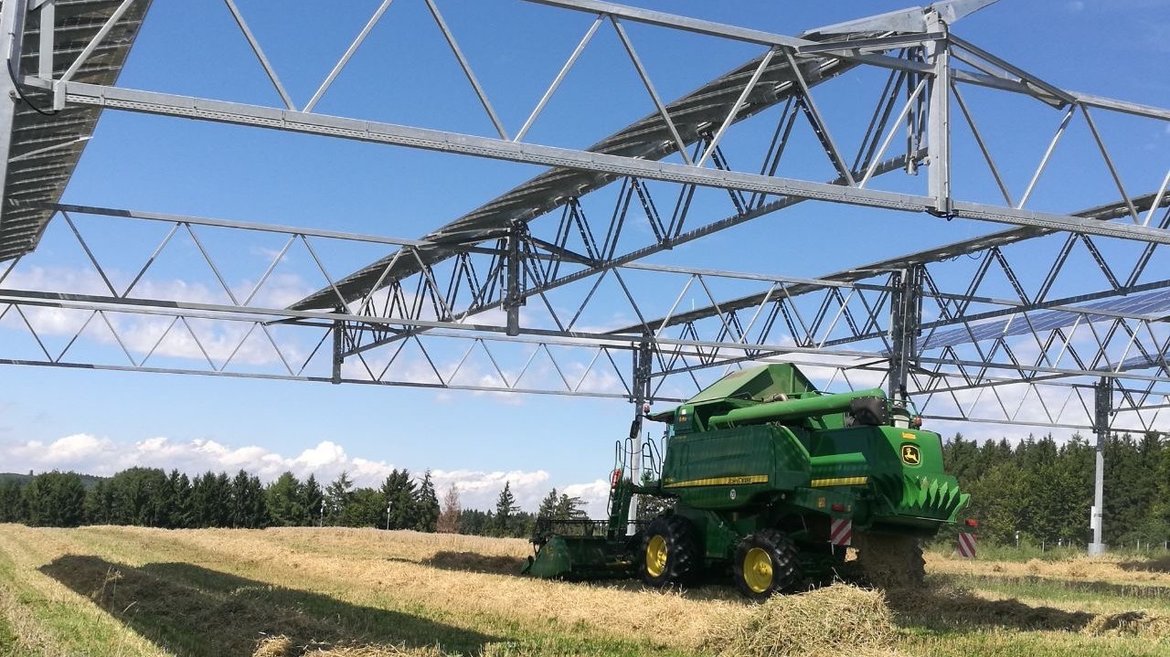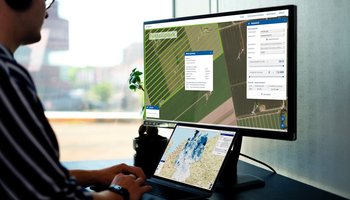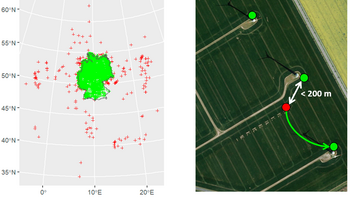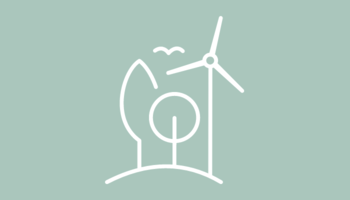

Agrivoltaics – ground-mounted photovoltaics – play a key role in the expansion of renewable energies. In addition to the prevailing low-mounted solar farms, whose acreages are withdrawn from agricultural use, the first integrated agrivoltaic systems show that agricultural use is still possible under high resp. vertically mounted modules. The project systematically compiles the state of knowledge and investigates the extent to which agrivoltaics can contribute to nature conservation goals.
The aim of the project is to provide a systematic overview of ground-mounted PV systems on agricultural land. The focus is on the impacts of high-mounted and vertical PV modules on nature and landscape. The current state of knowledge on construction-, installation- and operation-related factors and their impact on nature conservation issues– abiotic (water balance, soil, microclimate, landscape) as well as biotic (segetal weeds, fauna, field margins) – is analysed. The results of the analysis are used for the assessment from a nature conservation perspective.
Economic aspects of agrivoltaics are also examined in the project. A comparative analysis of different technical approaches to agrivoltaics regarding their yield structures, both for solar energy and agricultural production, reflects the current status and also helps to estimate future trends. In this context, different forms of agricultural use are distinguished in addition to the various designs of the systems.
In addition to the agrivoltaics, the project also addresses the impact of those forms of agrivoltaic farms which claim to fulfil nature conservation functions to a particularly high degree. The focus is on the conditions under which the construction-, system- and operation-related interactions of these (sometimes referred to as "biodiversity”) agrivoltaics with the biotic protected goods (avifauna, amphibians, reptiles, bees, grasshoppers, butterflies) turn out to be particularly positive. Particular attention is paid to the question of whether and under what conditions an enhancement of biotic functions would be possible with the new construction of a solar park on previously agriculturally used land.
On the basis of the results, starting points for minimum nature conservation standards for so-called biodiversity agrivoltacis installations are derived. Finally, the potential and limits of integrating agrivoltaics into territorial allocation pools for renewable energy plants are explored.
The basis of the project work is an international literature research. This includes publications, planning and approval documents (especially those that cover the condition of the area in question before, during and after plant construction) as well as practical examples. In addition, interviews are conducted.
The findings will be systematized in accord with the lines laid out by the research questions, which in turn will form the basis for an assessment of the impacts from a nature conservation perspective.
Bosch & Partner GmbH
Lorzingstr. 1, D-30177 Hannover
Dr Dieter Günnewig
Tel.: +49 511 390891-80
d.guennewig(at)boschpartner.de
IZES gGmbH
Institut für ZukunftsEnergie- und Stoffstromsysteme
Joachim Pertagnol
Tel.: +49 681 844972-56
Pertagnol(at)izes.de
Federal Agency for Nature Conservation (BfN)
FG II 4.3 Nature conservation and renewable energies
Alte Messe 6, D-04103 Leipzig
Friedhelm Igel
Tel.: +49 341 30977 165
Friedhelm.Igel(at)BfN.de
15.02.2023
Weiter

11.10.2022
Weiter

03.02.2022
Weiter
